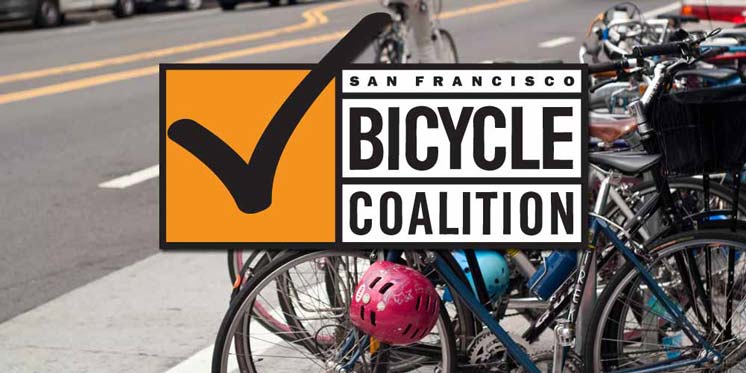As the San Francisco Bicycle Coalition is currently structured, we are legally required to release member contact information when requested to do so by a current member.
In late 2014, a member running for the Board requested member contact information so that he could directly communicate with members. In responding to this request, we learned that California law requires us to turn over member contact information, including name, address, phone number & email to any member who so requests and who refuses to agree to alternative methods of communicating with members. If alternative methods are rejected, the only way to prevent handing over members’ private contact information under this law is to go to court and incur significant legal fees to litigate the request, which is simply not a viable option for the organization.
As required, we provided the member contact information to the candidate, after he rejected our alternative offer. The candidate then emailed SF Bicycle Coalition members. Many members were surprised and upset about this, and complained about our turning over their private contact information.
How to protect the privacy of our members’ information
The Board consulted legal counsel about how to avoid this situation in the future. Following hours of discussions and research into how similar organizations have dealt with our same concerns, we concluded that the most common way to protect member privacy is to change how an organization selects its Board members. Specifically, organizations change the process from a Board-nominated and member-elected system to a Board-nominated and Board-selected system. By making the change to a Board-nominated and Board-selected system, an organization does not have to turn over member contact information. We in no way intended to diminish the role or involvement of our members. Our motivation was to ensure and uphold our members’ right to privacy.
Historically, SF Bicycle Coalition Board elections have been relatively low-key affairs in which the Board-endorsed candidates have generally won. Given this, we believed that the benefits of this change (i.e. protecting member privacy) outweighed the downside of eliminating member voting for Board members, particularly since there are an abundance of ways our members can engage with and provide input to the organization.
In addition, we believed this change was a good idea as the low member participation in Board elections poses some risk. For example, anyone can become a member for $35 and request all members’ private contact information. Furthermore, that member could then run for the Board and contact members directly to make whatever claims they wish about their qualifications. Since most SF Bicycle Coalition members historically voted in the Board elections, a relatively small number of votes may put someone on the Board. As a result, the organization could end up with a Board lacking the requisite skills to provide the governance functions that the SF Bicycle Coalition needs to comply with legal requirements, and to raise and manage the funds that support the organization.
Finally, similar organizations such as the California Bicycle Coalition, Walk SF and TransForm have gone through a similar transition in their Board selection process without reducing their effectiveness or close connection to their members.
We presented our recommendation to the SF Bike Coalition members and conducted a special vote of the members. Members voted 2-to-1 in favor of the change. A set of members, however, voted against the change and argued strongly for continuing with a member-elected Board.
We discovered an error in the special vote for members with no email or home address.
Some of the members who opposed the change pointed out that we had inadvertently failed to provide adequate notice to members who do not have an email or home address, nor did we offer a non-electronic method to vote in the special election. The error affected a small number of members, but we wanted the process to include all members. Therefore, the Board voted to rescind the change.
The SF Bicycle Coalition is a nonprofit public benefit corporation. Because members are entitled to vote for Board members, every member is entitled to obtain contact information and to communicate directly with all of the other members on any matter relating to SF Bicycle Coalition-related issues.
California’s Corporation Code section 6330(a)(1) states that any member may “[i]nspect and copy the record of all the members’ names, addresses and voting rights, at reasonable times, upon five business days’ prior written demand upon the corporation ….” Section 6330(c) gives the organization the right to propose an alternative means of communicating with members. But, if the member rejects this alternative proposal for any reason, then Section 6331 gives the organization ten days to choose between two options: (1) provide the member with the complete member list or (2) file a court action seeking to set aside the demand. If the organization files a lawsuit and loses, then “[t]he court shall award reasonable costs and attorneys’ fees, including reasonable attorneys’ fees.” (Cal. Corp. Code. § 6331(h).)


